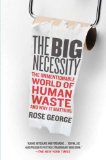Summary | Excerpt | Reviews | Beyond the Book | Readalikes | Genres & Themes | Author Bio

Critics' Opinion:
Readers' Opinion:
First Published:
Oct 2008, 304 pages
Paperback:
Jul 2009, 304 pages
 Book Reviewed by:
Book Reviewed by:
Beth Hemke Shapiro
Buy This Book
The group's name was surprisingly controversial. "The government didn't like the word 'volunteers.' " Voluntary activity was a problematic concept in China then. Public service was always imposed from above. The state controlled everything, and that included excreting habits and public hygiene. Throughout the 1950s, for example, the Chinese government tried several times to eradicate a plague of schistosomiasis, an infection of a parasitic worm found in dirty rice-paddy water. (It's also known as bilharzia or, in Chinese, "blood-sucking worm disease.") Shepherd boys, according to a report, "were mobilized to pick up stray excreta."
But Wang Ming Ying persisted and, after a few years of environmental work—there was a lot of litter-collection—Shaanxi Mothers were shown a video of biogas technology. They liked it, and decided to try it out with two test families in northern Shaanxi. The families lived in a village that had a fate typical of the area. Thirty years earlier, its population had consisted of four families, and the village was surrounded by trees. By the time Shaanxi Mothers arrived, there were thirty-four families and the forest was almost gone.
Biogas was an ideal solution. Two families were chosen to try out the digesters. The technique was simple enough: add pig excrement and human waste to the digester, occasionally stir it, and tap off the energy. But when the Mothers arrived for a follow-up survey, neither digester was being used. Eventually, Wang Ming Ying discovered that one of the families' toddler sons, Peng, had died by drowning in the pit. The Shaanxi Mothers learned a lesson: you can't install technology (the hardware) without ensuring the human element (the software) is also operational. Follow-up is essential. They began talking to their biogas users, a lot. It worked.
Ten years on, Shaanxi Mothers have installed 1,294 digesters in 26 villages. They have won prizes and got funding, though never enough. The money goes to subsidizing a third of the cost of a digester, with the householder and the government making up the rest. Wang Ming Ying estimates that for every new biogas digester installed, 1.2 tons of firewood—three trees—will be spared. She tells me to go and see for myself.
The journey to Da Li is long. It goes along roads that are so new they're not on the map and roads so bad they are flattened rocks with aspirations to being a thoroughfare. After several hours of bone-rattling driving, we arrive in northwest Shaanxi Province. There are boxes of apples everywhere, being loaded onto trucks, stacked on street corners. This is apple country. What the buyers of apples probably don't know is that this is apples-fertilized-with-human-excreta country.
Wang Ming Ying is a hero here, and all due courtesy is being extended. A blackboard bears the phrase "We wholeheartedly welcome the advice and arrival of our superior leaders," and bowls of apples and grapes have been thoughtfully set out on the table. They have been fertilized with biogas slurry, the village leader tells me with pride. Look, he says, how juicy the apples are. They are better now that we use biogas. The skin is thinner and the juice is sweeter. Even rice is better. Rice cooked with biogas is chewier and less likely to stick.
One of my hosts says there have been three main changes. "Human and national excreta is now turned into treasure. Households are much cleaner. Neighbors have a better relationship." Also, farmers' incomes have increased. Annually, they save 1,400 yuan ($200) on fertilizer, fuel, and the medicines they would otherwise have to buy for the constant diarrhea and stomach illnesses caused by filthy latrines. Also, farmers save two canisters of cooking gas per year, worth 120 yuan ($20). Using biogas for lighting saves another 40 yuan ($5) on energy bills. All in all, she says, the village has increased its income by 300,000 yuan ($43,000) a year. "The village," she concludes firmly, "is happier and wealthier."
Excerpted from The Big Necessity by Rose George. Copyright © 2008 by Rose George. Excerpted by permission of Metropolitan Books, a division of Macmillan. All rights reserved. No part of this excerpt may be reproduced or reprinted without permission in writing from the publisher.





The Funeral Cryer by Wenyan Lu
Debut novelist Wenyan Lu brings us this witty yet profound story about one woman's midlife reawakening in contemporary rural China.
Your guide toexceptional books
BookBrowse seeks out and recommends the best in contemporary fiction and nonfiction—books that not only engage and entertain but also deepen our understanding of ourselves and the world around us.